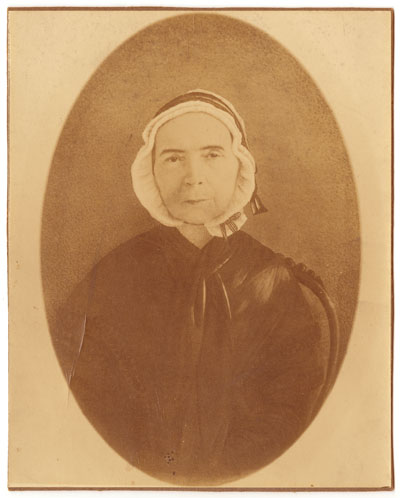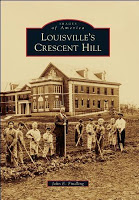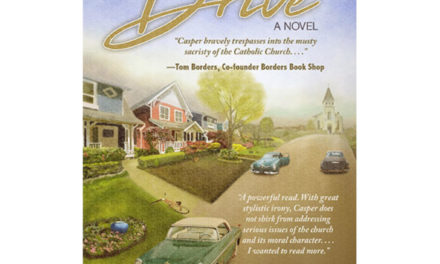Judith Brockenbrough McGuire
Diary of a Southern Refugee During the War: Annotated Edition
by Judith Brockenbrough McGuire
edited by James I. Robertson Jr.
Lexington: University Press of Kentucky, 2014
360 pp.; $60 cloth, $28 paperback
Review by Katherine Dalton
Entire contents are copyright © 2014 Katherine Dalton. All rights reserved.
Originally published in 1867 by “a lady of Virginia,” the Diary of a Southern Refugee During the War is a personal account of the Civil War as experienced by an Episcopal minister’s wife. Judith Brockenbrough McGuire’s diary begins in May 1861, as war is coming to her home in Alexandria, Virginia, where she and her husband, the Rev. John Peyton McGuire, lived while he served as headmaster of the all-male Episcopal High School. Being close to Washington they were among the first Southerners to be driven from their homes by the coming of the Union armies.
Mrs. McGuire spent the war searching for housing, nursing the wounded, sewing clothes, working as a Commissary clerk to earn some needed money, mourning the dead, and always anxiously awaiting news. Her diary is a reminder of how small the South was, among people of her elite class, and of how personal war becomes when you are living in an invaded country—no matter what class you are. In our era, with recent wars being fought so very far away, this is a good reminder. War is always horribly intimate for those who must live within it.
This book also gives several reminders of how well (and from the very beginning) many Southerners understood themselves to be outmanned and outgunned by the North, and how vulnerable to blockade. She reminds us, too, of how dear the Union was to many who felt forced to leave it. On May 4, 1861, at the start of her diary she writes, “And must this Union, which I was taught to revere, be rent asunder? Once I thought such a suggestion sacrilege; but now that it is dismembered, I trust it may never, never be reunited. We must be a separate people—our nationality must be different, to insure lasting peace and goodwill. Why cannot we part in peace?”
There are touching entries about packing up her house in 1861; about the deaths of men she had loved; about the chivalry of some Union commanders and soldiers, and the hate and violence of some others. She witnessed the burning of Richmond, had breakfast with General Lee, and wrote down many of the stories she was told by neighbors and soldiers and other refugees like herself. There is a real-time appeal to a diary like this, similar to the impression you get from certain documentaries: Mrs. McGuire is telling the tale of her life as she felt it day by day, during the greatest upheaval in our nation’s history.
While this book is not as celebrated as Mary Boykin Chesnut’s A Diary from Dixie, it is a valuable and often anthologized account. This edition is the first with extensive annotations. James I. Robertson Jr., an emeritus professor at Virginia Tech and director of the Virginia Center for Civil War Studies, provides seventy pages of notes explaining, where he can, the persons Mrs. McGuire identified only by initials and the events to which she refers, large and small. For that he deserves thanks.
[box_light] Katherine Dalton began working in journalism at The Yale Literary Magazine, during its brief period as a national magazine based at Yale. She has also worked at Harper’s Magazineand Chronicles, where she remains a contributing editor. She has written for publications ranging from the Wall Street Journal and the Baltimore Sun to the University Bookman and Harper’s Bazaar. Ms. Dalton is a contributor to Wendell Berry: Life and Work (edited by Jason Peters), Morris Grubb’s volume Conservations with Wendell Berry, and is currently at work on a book about farming. [/box_light]
Katherine Dalton began working in journalism at The Yale Literary Magazine, during its brief period as a national magazine based at Yale. She has also worked at Harper’s Magazineand Chronicles, where she remains a contributing editor. She has written for publications ranging from the Wall Street Journal and the Baltimore Sun to the University Bookman and Harper’s Bazaar. Ms. Dalton is a contributor to Wendell Berry: Life and Work (edited by Jason Peters), Morris Grubb’s volume Conservations with Wendell Berry, and is currently at work on a book about farming. [/box_light]





